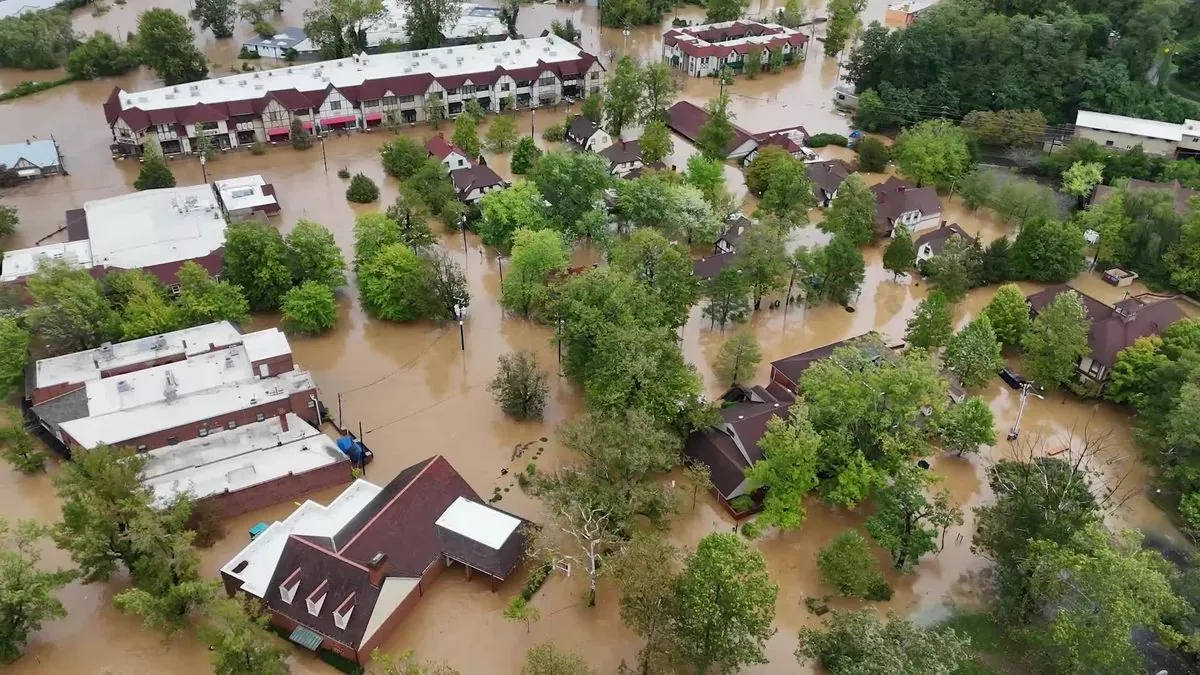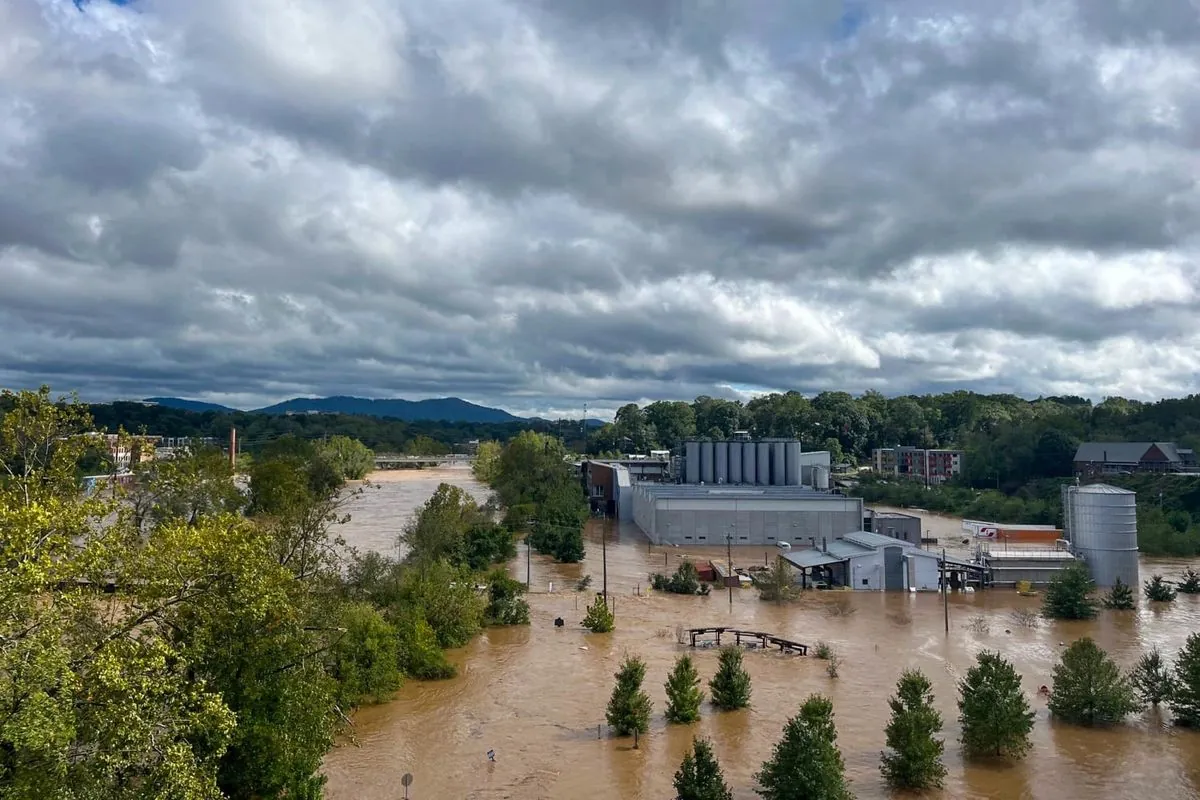Hurricane Helene Devastates Southeast US, Biden and Harris Tour Damage
Hurricane Helene wreaks havoc across southeastern US, leaving 162 dead and 1.2 million without power. Biden and Harris visit affected areas as recovery efforts begin in key election states.

Hurricane Helene has left a trail of destruction across the southeastern United States, claiming at least 162 lives and leaving 1.2 million homes and businesses without electricity. The storm, which made landfall in Florida as a Category 4 hurricane six days ago, has caused widespread flooding and infrastructure damage across Georgia and the Carolinas.
President Joe Biden and Vice President Kamala Harris are currently surveying the aftermath in key election states. Biden is visiting North and South Carolina, including an aerial tour of Asheville, where at least 57 fatalities occurred. Harris is scheduled to visit Georgia today and North Carolina later this week. These states are among seven crucial battlegrounds in the upcoming election, highlighting the political significance of the disaster response.
The storm's impact has been particularly severe in western North Carolina, where many residents have been without running water for nearly a week. The region, known for its beautiful Appalachian landscapes and the Great Smoky Mountains National Park, now faces a long road to recovery. Mount Mitchell, the highest peak east of the Mississippi River at 6,684 feet, played a crucial role in intensifying the rainfall during the storm.

In Asheville, often called "Beer City USA" due to its high concentration of breweries, local businesses are struggling to cope with the aftermath. Harrison Fahrer, co-founder of Cellarest Beer Project, expressed concern about the lack of water affecting their ability to brew and pay bills. This situation highlights the broader economic impact of the disaster on the region's thriving craft beer industry.
The unprecedented nature of the storm caught many residents off guard. Tennessee state climatologist Andrew Joyner described it as potentially a 5,000-year event for some locations in western North Carolina. The unique combination of factors, including pre-storm moisture from the Gulf of Mexico and the storm's perfect angle of approach over the Appalachian Mountains, created conditions for maximum precipitation.
Search and rescue efforts continue amid severe flooding and destruction. The National Guard, the oldest military force in the US founded in 1636, has been deployed to assist in these operations. FEMA, established in 1979 to coordinate disaster responses, is also actively involved in the recovery process.
U.S. Homeland Security Secretary Alejandro Mayorkas has stated that the recovery will be a "multibillion-dollar undertaking" lasting years. This assessment underscores the massive scale of the destruction, which may rival some of the costliest hurricanes in US history, such as Hurricane Katrina in 2005.
The impact of Hurricane Helene extends beyond immediate damage, raising questions about long-term climate resilience. Climate scientists warn that the intensity and frequency of such storms are likely to increase in the coming decades due to climate change, posing significant challenges for coastal and inland communities alike.
As the region begins its long journey to recovery, the resilience of local communities is being put to the test. The disaster has also highlighted the vulnerability of critical infrastructure, including the power grid and water systems, to extreme weather events. This catastrophe serves as a stark reminder of the need for improved disaster preparedness and infrastructure resilience in the face of increasingly unpredictable and severe weather patterns.
"Dad went to the back to grab my mom's purse where the keys were attached. Then, all I could hear was Parker (her son) saying, 'Grandpa's gone. Grandpa's gone.' And he was washed away."
This heart-wrenching account underscores the human toll of the disaster and the sudden, devastating impact it has had on families across the region. As the recovery efforts continue, the focus remains on supporting those affected and rebuilding stronger, more resilient communities in the wake of this unprecedented catastrophe.


































